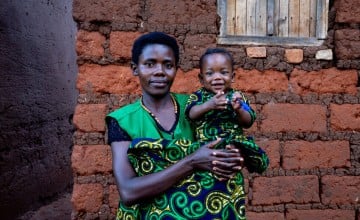
Read our 2024 annual report

Knowledge Hub
Breaking Down Barriers for Better Nutrition
Main lessons learned from Concern Worldwide’s experience in Burundi
Burundi is one of the poorest countries in the world, with over 65% of the population living below the poverty line. The prevalence of stunting is one of the highest in the world, far exceeding the thresholds set by the WHO. According to the national survey on nutrition and mortality using the SMART methodology conducted in 2024, 52.8% of children aged 6 to 59 months are affected by chronic malnutrition, 8% by acute malnutrition and 28.3% by underweight at the national level.
Women play a crucial role in Burundi's food production, frequently managing market gardening groups, farming and vegetable sales. However, they encounter systemic discrimination and restricted access to resources, limiting their involvement in decisions such as seed selection and produce allocation, while men typically decide what food is being sold and what is being consumed.
Concern Worldwide in Burundi is building on its gender-nutrition approach with the aim of approved nutrition outcomes in the field of behaviour change communication: Care Groups and Husband schools.
This learning paper presents the impact, lessons learned and recommendations from this experience.





